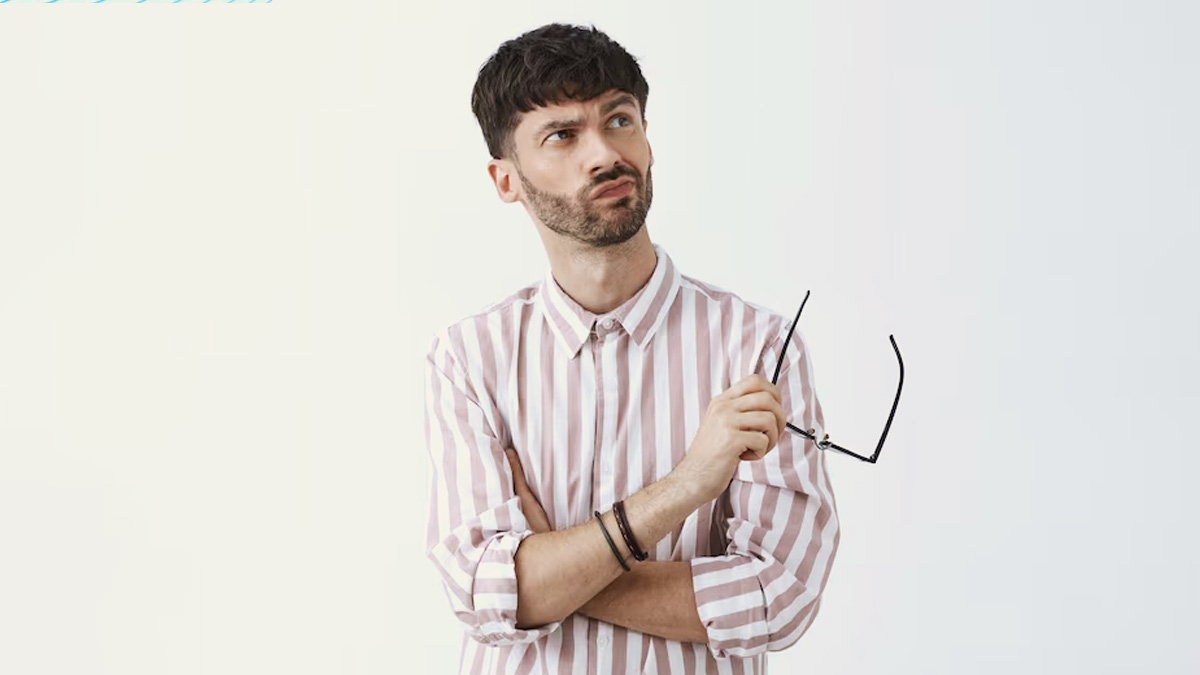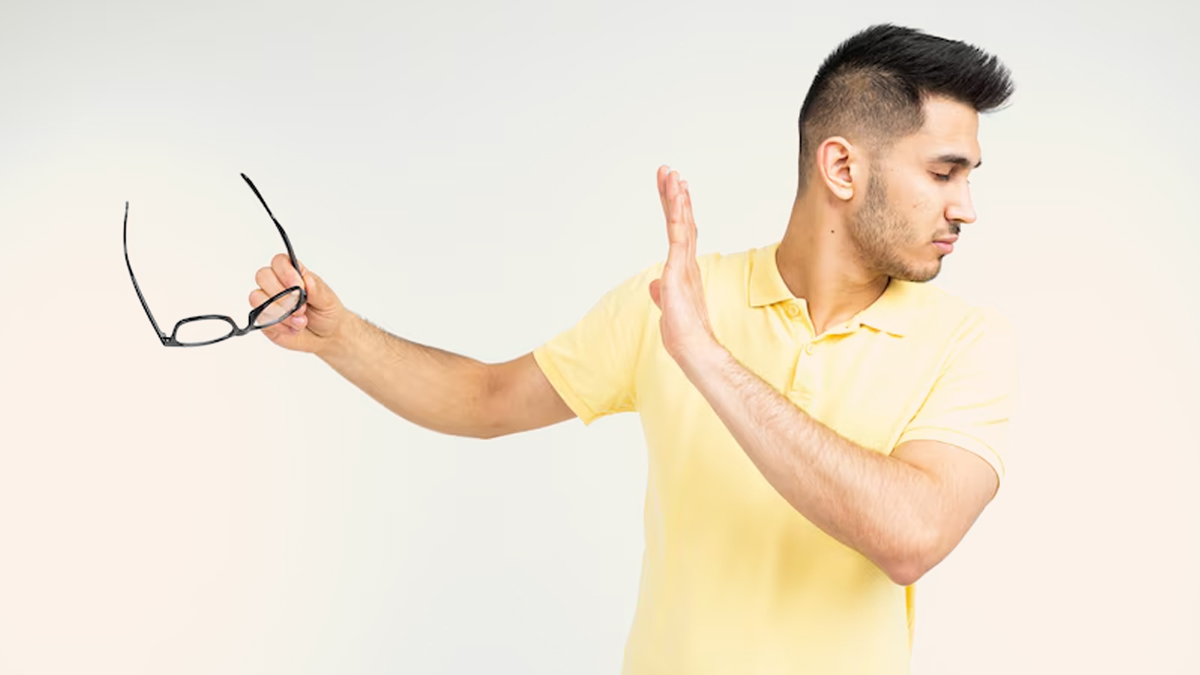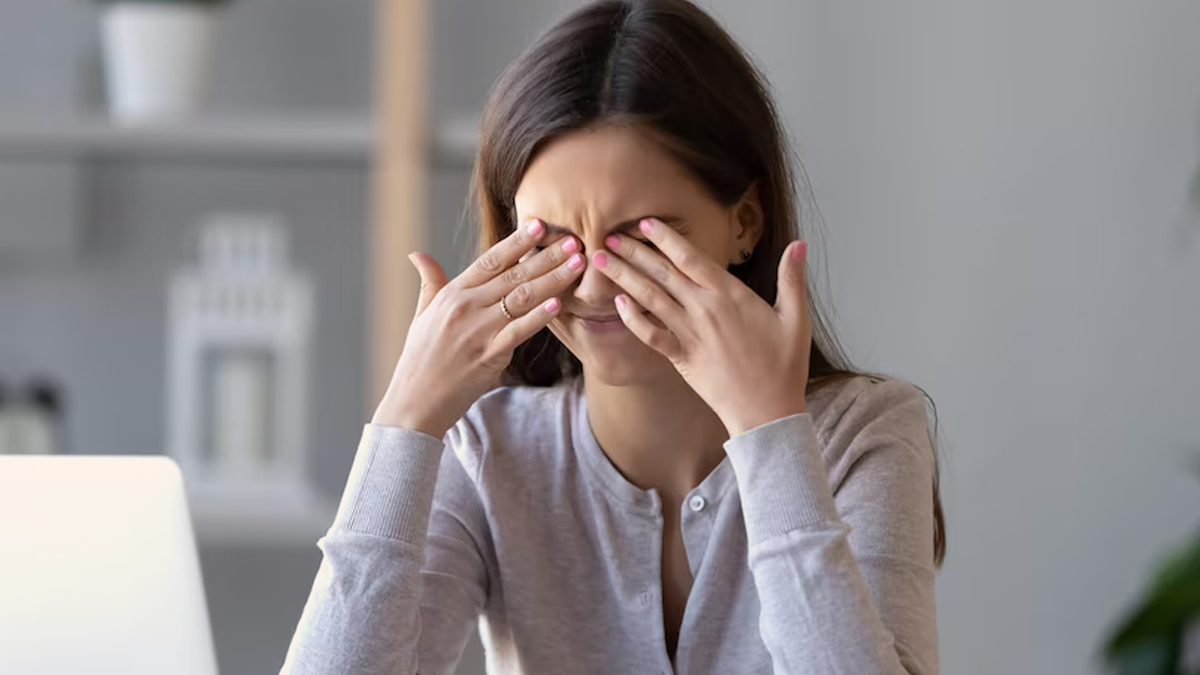
Wearing spectacles is often a necessity for those with refractive errors such as myopia (nearsightedness), hyperopia (farsightedness), or astigmatism. Glasses help correct these errors by ensuring that light is properly focused onto the retina, improving vision clarity. However, some individuals may be tempted to stop wearing their glasses without consulting an ophthalmologist, either due to discomfort, inconvenience, or a belief that their vision has improved naturally. While it may seem harmless, this decision can have a variety of negative effects on your eyes and daily life.
Table of Content:-
To understand how not wearing spectacles can affect your eyes, OnlyMyHealth interacted with Dr Rishi Raj Borah, Country Director, Orbis (India). According to him, “If you stop wearing spectacles without an ophthalmologist’s recommendation, it can lead to various issues affecting your vision and overall comfort. Glasses are prescribed to correct refractive errors like myopia, hyperopia, or astigmatism. Without them, your visual clarity is compromised, which can impact everyday activities such as reading, driving, or using digital devices.”
Here are some of the potential consequences of discontinuing the use of your spectacles without medical advice:

1. Blurred Vision
One of the most immediate and obvious effects of not wearing your glasses is blurred vision. The clarity of your sight depends on the severity of your refractive error. If you have myopia, for example, objects at a distance may appear fuzzy, making it difficult to recognise faces, read signs, or even drive safely. For those with hyperopia, focusing on nearby objects like a book or computer screen can become a challenge. Dr Borah explains, “Tasks like reading, driving, or recognizing faces from a distance may become difficult when you stop using corrective lenses, as your eyes are unable to focus properly on images.”
2. Eye Strain

“Without corrective lenses, your eyes will work harder to focus, leading to eye strain. Symptoms include tired eyes, discomfort, and a sense of fatigue, particularly after focusing on something for a long time,” says Dr Borah. Eye strain is particularly noticeable after long periods of concentration, such as reading, using a computer, or watching television.
Also read: Expert Answers: Do Blue Light Glasses Really Reduce Eye-Strain?
3. Frequent Headaches
Eye strain is often accompanied by headaches. When you squint or strain your eyes to see clearly, it can put additional pressure on the muscles around your eyes and head, leading to frequent headaches. Dr Borah highlighted this issue and said, “Straining to see clearly can lead to headaches, often felt around the forehead, temples, or behind the eyes.”

4. Reduced Focus and Productivity
Blurry vision can make it harder to concentrate, especially when performing visually demanding tasks such as reading, writing, or using a computer. This, according to Dr Borah, may also lead to a quicker onset of fatigue, especially during work or study.
5. Increased Risk of Accidents
Dr Borah points out, “Poor vision, especially when performing tasks like driving or navigating unfamiliar areas, increases the risk of accidents or injuries, compromising safety.” Being unable to see clearly could lead to dangerous situations, both for yourself and others around you.
Also read: Is It Safe To Wear Zero Power Glasses With Perfect Vision?
Conclusion
While it may seem like skipping your glasses doesn’t harm your eyes in the long run, it can certainly degrade the quality of your daily life. Not wearing your glasses does not typically worsen your refractive error, but it can make life uncomfortable and inconvenient. “It is always advisable to consult an ophthalmologist before deciding to stop using corrective lenses,” emphasises Dr Borah. A professional opinion is essential to ensure that any decision related to your eye health is informed and safe.
How we keep this article up to date:
We work with experts and keep a close eye on the latest in health and wellness. Whenever there is a new research or helpful information, we update our articles with accurate and useful advice.
Current Version
